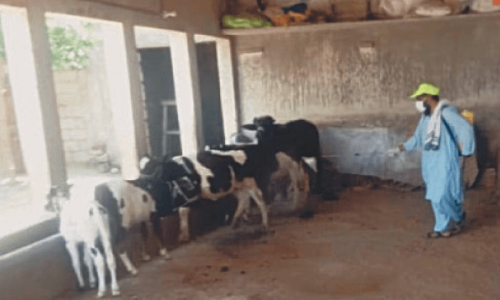While preparations for Eid have begun in earnest in markets and homes, an old people’s home marks Eid only as a reminder of the family and loved ones they now rarely hear from.
Aaffiat is an old people’s home set up by the Punjab social welfare department on Khanna Road. It houses 17 people, some of whom have been abandoned by their relatives or thrown out of their homes by their children. “For me, all the days are the same,” said 76-year-old Taj Mohammad.
“There is no excitement – I spend my days, eating and praying for the nation instead of my children, who have left me unattended here.
“My wife and I brought our son up with love and hard work,” Mr Mohammad recalled. But after his wife died, his life became more difficult. He had to leave his home after his son and daughter-in-law began treating him badly. “I don’t blame my daughter-in-law, she is an outsider, but my own son treated me strangely and disrespectfully,” he said.
Kulsoom Bibi has been residing in the home for five years. She said she spends Eid and other festive occasions roaming around the office, waiting for a phone call from her daughter. After Kulsoom Bibi’s husband died, her daughter refused to let her live in her house because her in-laws didn’t like seeing her mother. With tears in her eyes, she said: “I have no relatives. I remember my friends, cousins and my daughter, but everyone has left me alone.”
“I’ve spent over 11 Eids in the home, and all the days are the same for us. We spend some time in the mosque, and the remainder of the time at the home, resting,” said Ali Sharif.
Now 90 years old, Mr Sharif said he retired from a government job. He came from Murree in 1935 and joined the Survey of Pakistan. “I married twice but don’t have any children. After my wives died, my relatives brought me to the home for a few days and didn’t return.”
Most of the residents said their lives had become aimless after the death of their partners. “I never thought that such a time would come in my life when my children would leave me alone,” said Mohammad Akram.
“I was living with my son, but his wife and in-laws didn’t want me to live with them so my son asked me to leave.”
Ruqia Bibi, who looks after the residents of Aaffiat, said the home has facilities to monitor blood pressure, test blood sugar and medications for minor ailments, but most residents are referred to government hospitals.
She said residents are also provided counselling to overcome depression. “The people residing in the home have suffered mental trauma. They have to live in isolation, which brings problems. They can become patients of depression,” she said.

Published in Dawn, July 3rd, 2016












































